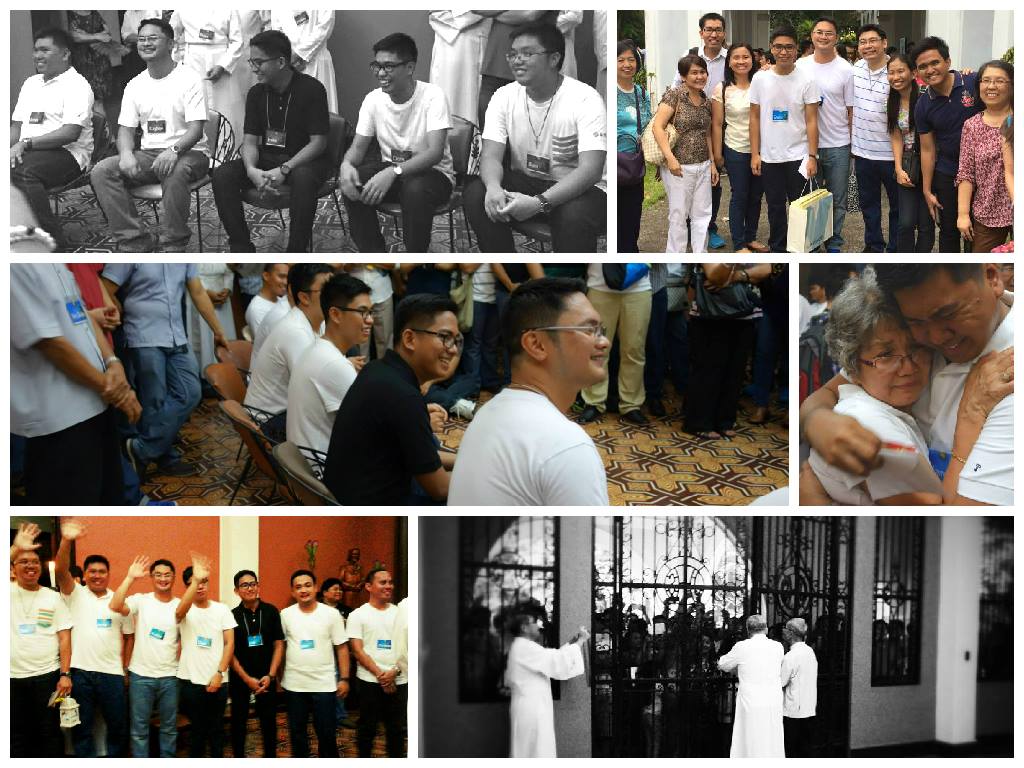By Fr. Olivier Lardinois SJ, Assistant for Formation, Chinese Jesuit Province
This article was originally published in Jesuits in Asia Pacific 2015, the annual report of the Jesuit Conference of Asia Pacific. It can also be found in their website.
Jesuit Commitment
At the very heart of the Jesuit vocation lies a personal commitment to follow the call of Jesus to work through him, with him and in him at the service of the Kingdom of God, which grows anywhere love and justice flourish: “Follow me and I will make you into fishers of men” (Mark 1:17) This is

why several documents on Jesuit formation claim that God is the educator par excellence and why training for mission cannot succeed without helping the young Jesuit foster his friendship with Jesus. Through a solid and regular prayer life, the young Jesuit in formation cultivates his intimacy with Christ, which slowly teaches him how to better discern, teach, behave and love as Jesus himself would do. In fact, without an ability to convert himself daily in front of the Gospel and a deep desire to grow as a disciple of Jesus, a young man is unfit to enter or to stay in the Society of Jesus.
Gaining a freedom of heart
Another crucial dimension of Jesuit formation is to learn how to gain an ever-growing freedom of heart in front of all those things that can become a real obstacle to serving the mission well. Some examples of obstacles are over-dependence on the affection of our family or good friends, too great an attachment to material comfort, a recurrent desire to feel 100 percent secure, our own ideas or prejudices regarding other persons or social classes or cultures or religions, our inner fears and anxieties, a lack of faith in God’s actions, having too strong a need to have our achievements seen and praised by others, and giving too much attention to our own self-respect and face. This is why Jesuit formation endeavors to provide not just solid training in spiritual life towards conversion, but also a few psychological tools to help the future priest or brother to know his own personality better-his talents and limits, the inner wounds brought by early childhood, his patterns for leadership and the maintaining of relationships, his own gree, sexual impulse, anger or blues, etc. The more a man learns about how to cope well with his own imperfect character and psychology, the better he can serve others.
Empowering Priests and Brothers
Another important challenge of Jesuit formation is to empower future priests and brothers so that they can serve, accompany and/or train people, with enough joy, abnegation, intelligence, discernment, common sense, discretion, flexibility, humility and creativity. Without possessing at least a few of these abilities, it will not be easy for them to pursue the main aims of the Jesuit mission: to inseparably promote faith and justice, to train men and women at the service of a more attractive Church and/or a better world, to do mission works at the frontiers i.e. where other priests usually do not go to serve, and to dialogue and cooperate with people of other cultures and/or religious faiths. This is why even as the young Jesuit studies philosophy or theology, he is asked to serve with confreres and collaborators in different kinds of challenging works to teach him how to work as part of a team and help him become a more mature, wise and loving human being. These works include service to the sick or to prisoners, teaching in a high school or university, social works at the service of the poor, intellectual research, preaching in front of an audience, youth training or pastoral leadership, media work, and spiritual guidance.
Last but not least, the main characteristic of Jesuit formation is the Magis Spirit. It means to learn how to reflect and to work at a deep level, so that the result of one’s efforts in mission work can produce many good and long-term fruit. Jesuit formation insists much on the high quality of intellectual  studies, which should not only include a solid introduction to the human sciences such as philosophy, social analysis and anthropology and/or psychology, but also good training on how to reflect,write or speak on various subjects in depth, with a sharp, critical spirit in front of the sources of knowledge which man uses, and with the realization that any reality if often quite complex to understand and judge. In this spirit, the young Jesuit is encouraged to experience at every stage of his formation various mission contexts, which will help him work effectively in today’s global and multi-cultural world.
studies, which should not only include a solid introduction to the human sciences such as philosophy, social analysis and anthropology and/or psychology, but also good training on how to reflect,write or speak on various subjects in depth, with a sharp, critical spirit in front of the sources of knowledge which man uses, and with the realization that any reality if often quite complex to understand and judge. In this spirit, the young Jesuit is encouraged to experience at every stage of his formation various mission contexts, which will help him work effectively in today’s global and multi-cultural world.
